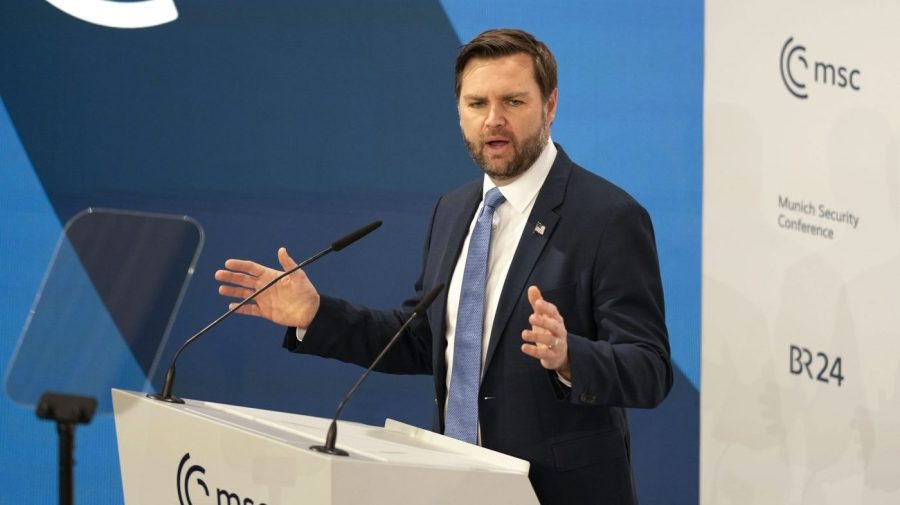
Vice President Vance in a new interview said President Trump has an “extremely broad” range of options, from economic tools to military tools, that he could use of leverage in talks with Russia to end the Ukraine war.
Vance spoke with The Wall Street Journal while in Germany for the Munich Security Conference, where he was asked what the “stick” would be for Russian President Vladimir Putin to ensure he abides by any ceasefire agreement to end the nearly three-year-long conflict.
“I think certainly look there, there are instruments of pressure, absolutely and again, if you look at President Trump’s approach to this, the range of options is extremely broad,” Vance said. “And there are economic tools of leverage. There [are], of course, military tools of leverage.”
“There’s a whole host of things that we could do,” he continued. “But fundamentally, I think the President wants to have a productive negotiation, both with Putin and with Zelensky.”
Vance also noted that Trump has been “very clear” that he “doesn’t like the idea of moving Ukraine into NATO.”
“I also think the president is very clear that whenever he walks in a negotiation, everything is on the table,” he said.
Vance’s comments came ahead of a scheduled meeting with Ukrainian President Volodymyr Zelensky on the sidelines of the Munich conference.
Trump has signaled he is ready to move forward with negotiations between Russia and Ukraine to end the conflict that began in 2022 when Russian forces invaded Ukraine.
The president spoke with Putin and Zelensky on Wednesday, though he spoke with the Russian leader first and signaled the two would meet in person in the near future. Trump also called it an “interesting question” when asked if he viewed Ukraine as an “equal member” in peace talks.
Defense Secretary Pete Hegseth made waves when he said Ukraine should not expect to join NATO as a result of peace talks, nor to claw back the Crimean Peninsula and other territory it lost in 2014, both seen as key components of a potential deal.
Zelensky said it was “not pleasant” to learn that Trump called Putin first, and he rejected the idea of a deal negotiated without Ukraine.
The Biden administration made support for Ukraine from the U.S. and its allies central to its foreign policy, approving billions of dollars in military and financial assistance.
Vance also met Friday in Germany with NATO Secretary General Mark Rutte, where the vice president stressed the need for Europe to contribute more to ensure the alliance remains strong into the future.
“I mean, my high level argument to these folks is, look, Europe is of course a very important ally in the United States. NATO is a very important military alliance, of course, that we’re the most significant part of,” the vice president told reporters.
“But we want to make sure that NATO is actually built for the future, and we think a big part of that is ensuring that NATO does a little bit more burden sharing in Europe, so the United States can focus on some of our challenges in East Asia,” Vance added.












